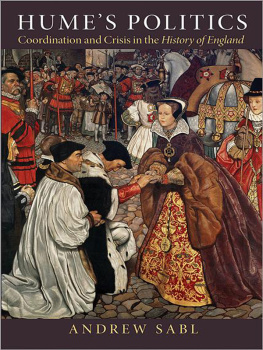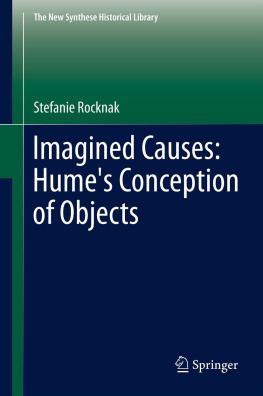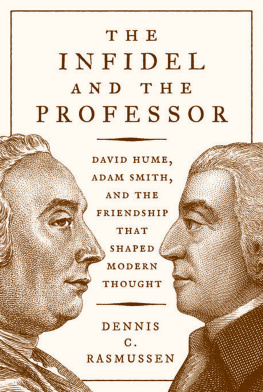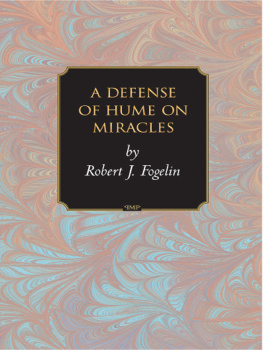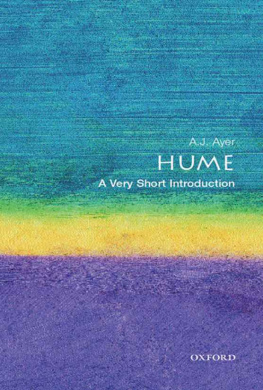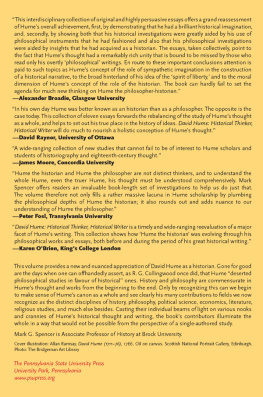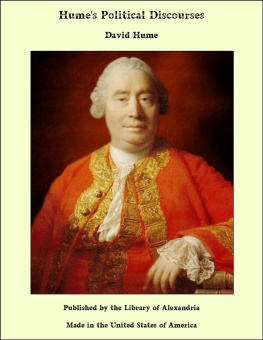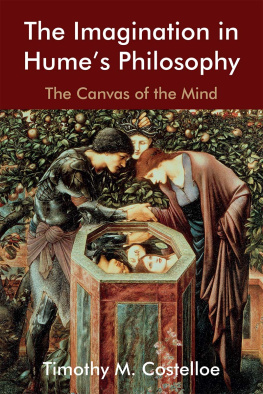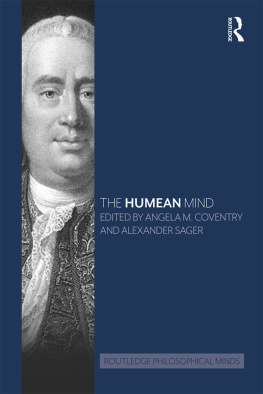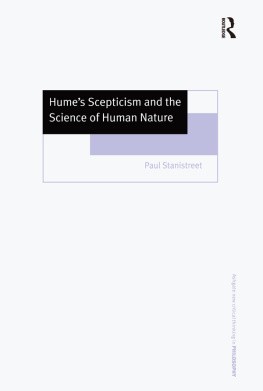Hume David - Humes politics: coordination and crisis in the history of England
Here you can read online Hume David - Humes politics: coordination and crisis in the history of England full text of the book (entire story) in english for free. Download pdf and epub, get meaning, cover and reviews about this ebook. City: Great Britain, year: 2017;2012, publisher: Princeton University Press, genre: Politics. Description of the work, (preface) as well as reviews are available. Best literature library LitArk.com created for fans of good reading and offers a wide selection of genres:
Romance novel
Science fiction
Adventure
Detective
Science
History
Home and family
Prose
Art
Politics
Computer
Non-fiction
Religion
Business
Children
Humor
Choose a favorite category and find really read worthwhile books. Enjoy immersion in the world of imagination, feel the emotions of the characters or learn something new for yourself, make an fascinating discovery.
- Book:Humes politics: coordination and crisis in the history of England
- Author:
- Publisher:Princeton University Press
- Genre:
- Year:2017;2012
- City:Great Britain
- Rating:5 / 5
- Favourites:Add to favourites
- Your mark:
- 100
- 1
- 2
- 3
- 4
- 5
Humes politics: coordination and crisis in the history of England: summary, description and annotation
We offer to read an annotation, description, summary or preface (depends on what the author of the book "Humes politics: coordination and crisis in the history of England" wrote himself). If you haven't found the necessary information about the book — write in the comments, we will try to find it.
Humes politics: coordination and crisis in the history of England — read online for free the complete book (whole text) full work
Below is the text of the book, divided by pages. System saving the place of the last page read, allows you to conveniently read the book "Humes politics: coordination and crisis in the history of England" online for free, without having to search again every time where you left off. Put a bookmark, and you can go to the page where you finished reading at any time.
Font size:
Interval:
Bookmark:

Humes Politics
Humes Politics
Coordination and Crisis in the History of England
ANDREW SABL
Princeton University Press
Princeton and Oxford
Copyright 2012 by Princeton University Press
Requests for permission to reproduce material from this work should be sent to Permissions, Princeton University Press
Published by Princeton University Press, 41 William Street,
Princeton, New Jersey 08540
In the United Kingdom: Princeton University Press, 6 Oxford Street,
Woodstock, Oxfordshire OX20 1TW
press.princeton.edu
Jacket art: John Byam Liston Shaw (18721919), Queen Mary (151658) and Princess Elizabeth (15331603) entering London, 1553, 1910 (fresco), Houses of Parliament, Westminster, London, UK. Courtesy of the Bridgeman Art Library.
All Rights Reserved
Library of Congress Cataloging-in-Publication Data
Sabl, Andrew, 1969
Humes politics : coordination and crisis in the history of England / Andrew Sabl.
p. cm.
Summary: Humes Politics provides a comprehensive examination of David Humes political theory, and is the first book to focus on Humes monumental History of England as the key to his distinctly political ideas. Andrew Sabl argues that conventions of authority are the main building blocks of Humean politics, and explores how the History addresses political change and disequilibrium through a dynamic treatment of coordination problems. Dynamic coordination, as employed in Humes work, explains how conventions of political authority arise, change, adapt to new social and economic conditions, improve or decay, and die. Sabl shows how Humean constitutional conservatism need not hinderand may in fact facilitatechange and improvement in economic, social, and cultural life. He also identifies how Humean liberalism can offer a systematic alternative to neo-Kantian approaches to politics and liberal theory. At once scholarly and accessibly written, Humes Politics builds bridges between political theory and political science. It treats issues of concern to both fields, including the prehistory of political coordination, the obstacles that must be overcome in order for citizens to see themselves as sharing common political interests, the close and counterintuitive relationship between governmental authority and civic allegiance, the strategic ethics of political crisis and constitutional change, and the ways in which the biases and injustices endemic to executive power can be corrected by legislative contestation and debateProvided by publisher.
Includes bibliographical references and index.
ISBN 978-0-691-13420-8 (hardback)
1. Hume, David, 17111776. 2. Great BritainPolitics and government. I. Title.
JC176.H9S23 2012
320.01dc23
2012028874
British Library Cataloging-in-Publication Data is available
This book has been composed in Minion Pro
Printed on acid-free paper.
Printed in the United States of America
10 9 8 7 6 5 4 3 2 1
To Miriam
In his own time, Humes religious opinions and his largely naturalistic treatment of morality made him a controversial figure. My own encounter with Hume has, perhaps surprisingly, retained a hint of forbidden knowledge.
My only formal education in Hume (two sessions in an undergraduate survey course) in effect assured me that Hume, as a quasi-relativist whose moral theory appealed to sentiment, could safely be ignored as irrelevant to political theorys real task: seeking rational standards for evaluating political and moral obligations. That portrayal, though extreme, only radicalized what, I later learned, many philosophy departments still teach: Humes theory, however intelligent and original, fails to give proper accounts of normativity, practical reason, or the authority of moral requirementsfails, in short, to be Kants. Harvards Government department, where I earned my undergraduate and graduate degrees, lacked this neo-Kantian dogmatism. But it had a canon of its own that also left little space for Hume, or Humes questions, among its roster of ancients who sought the Good Life (or, depending on whom one consulted, apprehended natural Right) and moderns concerned with the origins and limits of political obligation in the face of natural liberty and equality. When, after my graduate training, I began to read Hume seriously, he seemed to me much as he must have seemed to his contemporaries, though for different reasons. What made his work bracing, both shocking and liberating, was not just what he said but what he claimed a license to ignore. Hume showed meand can still show others who encounter him in his native, wild habitathow many icons can be shattered if one merely presses good sense and observation where they lead, with a constant sense of sanity and humanity but without regard to reigning myths.
Approaching Hume as a special-purpose autodidact has had costs, but also advantages. Not knowing at first that Hume scholars were supposed to read only the philosophical works and ignore the History of England, I encountered that book as a revelation, as the unparalleled synthesis of statecraft, scholarship, human science, rhetoric, and philosophy that it seemed to Humes contemporaries and to generations of later admirers. Never before and never since has the best philosopher of an era written a book about the varieties of political choice and about the institutions that arise from the stealthy aggregation of political choices. The result remains an inexhaustible source of both joy and instruction. Not knowing that even eccentrics who read the History were supposed to take only the Stuart volumes seriously, I took up the whole and found that some of Humes best political theory, and best writing, occurs in the last volumes he wrote: the ancient and medieval ones. Finally, while the secondary literature on Hume has been of enormous help to me, and I hope I have given it proper credit, I have been freetoo free, some will thinkto take my own approach to Humes fiercely independent thought via a set of questions suggested by politics, not by the literature.
Those who have read my first book, Ruling Passions, may wonder how the two relate. The books are very different in style, subject matter, and approach. And on an obvious level, while my first book admittedly displays the child-of-immigrants determination to understand my own country, this book tries to understand politics through the greater distance allowed by an encounter with another. (Here I feebly imitate Hume himself, who wrote about England as a Scot.) But there are also continuities. Both books aim at a political theory that treats not ideal institutions but real politics, seen as a realm of action and strategy. Both show some sympathy toward rational choice theory (greater now), though in a non-sectarian and non-exclusivist form. Both aim to vindicate a kind of liberal and democratic theory that is grounded in politics rather than starting from legal or philosophical alternatives to politics. Both are concerned with the interplay between political reform and constitutional conservation. One way to understand the connection between that book and this is through this last theme. In my first book I largely took constitutional forms of politics for granted, as being both durable and desirable. In this one I seek more fundamental explanations of where they come from and what they accomplish.
This work has profited from what Hume called (in a different context) the force of many sympathies. Among countless interlocutors who have shaped its arguments through their comments and advice, I would like to thank particularly Jim Barr, Mary Barr, Eric Beerbohm, Ross Carroll, Mary Dietz, Michael Frazer, Bill Galston, Russell Hardin, Frits van Holthoon, Sharon Krause, Harvey Mansfield, Neil McArthur, Dan ONeill, Michael Rosen, Nancy Rosenblum, Lucas Swaine, and Richard Tuck. My UCLA colleagues Joshua Dienstag, Kirstie McClure, Anthony Pagden, Carole Pateman, Giulia Sissa, and Brian Walker have been particularly helpful, insightful, and patient, though the prize in all these events goes to Mark A. R. Kleiman. Ben . For their comments on earlier versions I thank the panelists and audiences at the political theory workshops at Harvard, Northwestern, and UCLA; the University of Torontos Hume at 300 conference in 2011; and the annual meetings of the American Political Science Association, the New England Political Science Association, and the Western Political Science Association. I have never presented anything directly from the book at the Hume Societys annual meeting, but have drawn both wisdom and happiness from an atmosphere there that combines ardent scholarship with good cheer.
Next pageFont size:
Interval:
Bookmark:
Similar books «Humes politics: coordination and crisis in the history of England»
Look at similar books to Humes politics: coordination and crisis in the history of England. We have selected literature similar in name and meaning in the hope of providing readers with more options to find new, interesting, not yet read works.
Discussion, reviews of the book Humes politics: coordination and crisis in the history of England and just readers' own opinions. Leave your comments, write what you think about the work, its meaning or the main characters. Specify what exactly you liked and what you didn't like, and why you think so.

